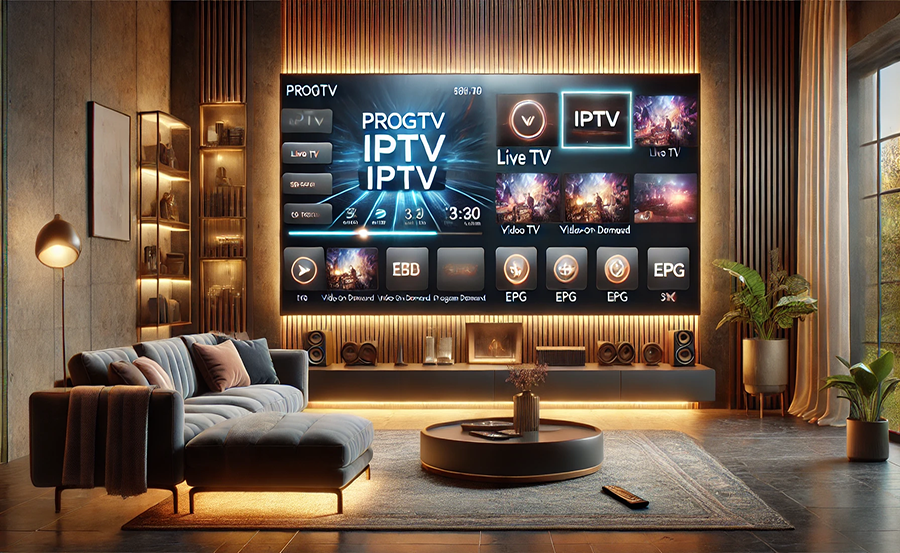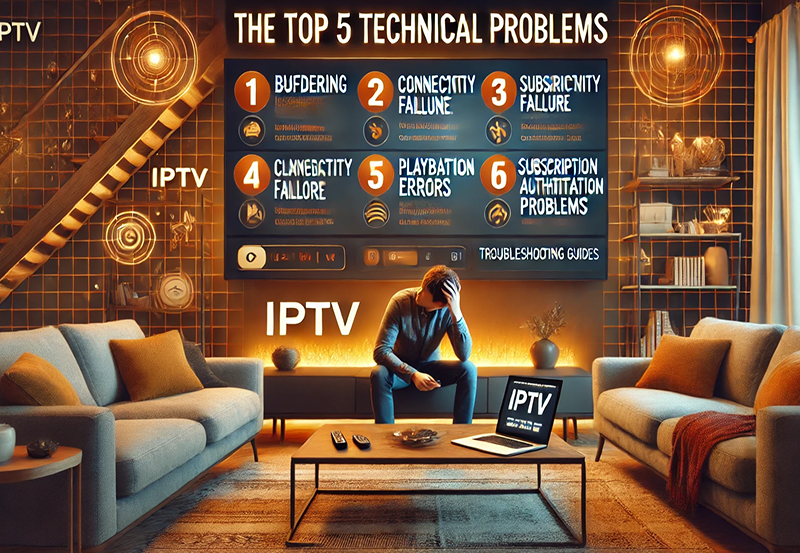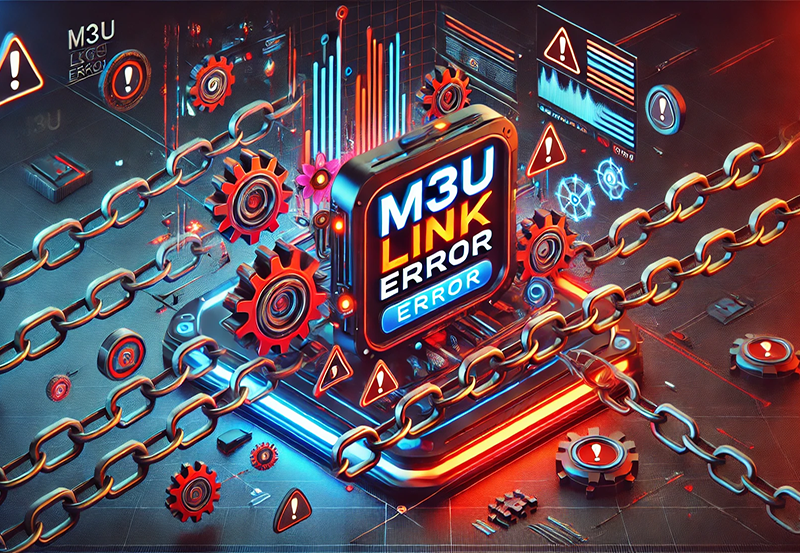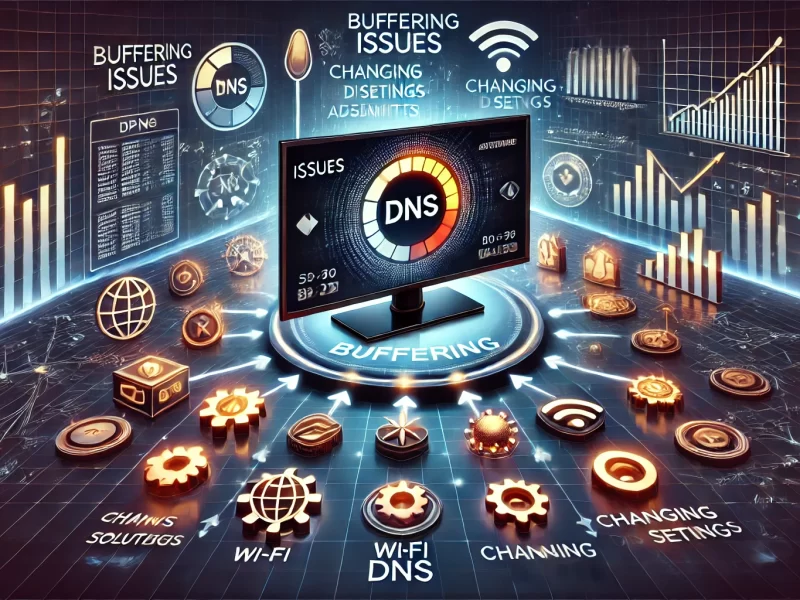As IPTV becomes an increasingly popular way to access television content, more and more people are finding themselves negotiating the occasional hiccup that comes with the technology. Live TV streaming through IPTV services offers flexibility and a wealth of viewing options, but it can also leave users scratching their heads when something goes awry. Whether you’re attempting to watch your favorite show on IPTV on Roku or exploring The Expert’s Guide to IPTV Enjoyment, understanding how to fix these common issues is essential. In this article, we’ll explain possible solutions in a straightforward manner, hoping to make your IPTV experience as smooth as possible.
Identifying General Connectivity Problems
Check Your Internet Connection
One of the first steps in resolving IPTV issues is ensuring your internet connection is functioning correctly. A weak or unstable internet connection can lead to buffering, lag, or even cause your IPTV service to stop working entirely. Begin by checking your modem and router. Ensure all cables are secure and that the indicators on these devices display normal operation. If you’re still facing issues, try restarting them. Power cycling your router and modem can often solve mysterious connectivity problems.
Evaluate Your Network Setup
Your network setup can also play a significant role in IPTV performance. Ensure your device running the IPTV app is on the same network as your router. If you’re using Wi-Fi, try connecting through an Ethernet cable instead, as this can provide a more stable connection. Wireless connections, while convenient, may sometimes be prone to interference from other devices or physical obstructions.
Firewall and Security Settings
Firewall configurations and security settings of your network can unintentionally block IPTV data streams. Review your router’s settings and disable any blocking features for testing purposes. Be sure to re-enable these features if they’re an essential part of your network security.
In addition to the router, check any antivirus or firewall applications on the device itself. These programs might inadvertently be set to block certain types of traffic crucial for IPTV streaming.
Addressing Streaming Quality Issues
Improving Video Buffering
Video buffering can be frustrating, especially during live events. Often, this is due to insufficient bandwidth or local network congestion. Ensure no other bandwidth-intensive tasks are running on your network, such as large downloads or uploads, while streaming. Consider upgrading your internet package if this continues to be a problem.
Optimizing IPTV Settings
Adjusting the settings within your IPTV application can sometimes improve streaming quality. Many apps offer the ability to change buffer settings. Experimenting with different buffer lengths might minimize interruptions. Additionally, some services provide options to select different servers or change the video quality to match your bandwidth capabilities.
Buy 1 Year IPTV Subscription and Enjoy Unlimited Content
Device-Specific Troubleshooting
IPTV on Roku
Setting up IPTV on Roku can sometimes lead to device-specific issues. Ensure that you’ve downloaded a reliable IPTV app from the Roku Channel Store. Occasionally, these apps require updates to operate smoothly, so always keep your applications and Roku firmware up to date. If issues persist, try a factory reset to restore your Roku to default settings before reconfiguring the IPTV service.
Smart TVs and External Devices
For Smart TVs, check for the latest software updates which may solve compatibility issues. Sometimes, external devices like streaming sticks can offer better performance than the TV’s internal apps. Ensure your connecting cables are functioning properly, as damaged HDMI or Ethernet cables could cause connectivity problems.
Common Audio and Video Problems
Sync Problems
Audio or video out of sync can spoil any streaming experience. This might be due to a software issue or codec mismatch. Restarting the app or your device can often resolve these temporary glitches. If the problem persists, check for any app updates that could fix bugs responsible for such inconsistencies.
No Sound
When encountering no sound issues, first check the volume settings on your device and ensure that it isn’t muted. Additionally, try switching the audio output options within the app settings. Testing with a different device or audio output such as headphones can help isolate whether the issue is with the app or the hardware.
Security and Privacy Concerns
VPN and IPTV
Using VPNs with IPTV can be a double-edged sword. While they can help you maintain privacy and access region-restricted content, they could also slow down your connection, leading to buffering issues. Select a reputable VPN provider known for stable speeds and opt for servers located closer to your region for optimal performance.
Protecting Personal Information
Being cautious with personal information while using IPTV services is critical. Only subscribe to trusted providers and be wary of sharing sensitive data. Regularly monitor your accounts for suspicious activity and use strong, unique passwords to safeguard your data from potential breaches.
Conclusion: The Path to Enjoying IPTV
Stepping through the maze of IPTV troubleshooting might seem daunting at times, but arming yourself with practical solutions can make this journey less cumbersome. Whether you’re dealing with connectivity quirks, device troubles, or stream quality dilemmas, a little patience and the right tweaks can enhance your IPTV experience. Explore various tools and settings to tailor your viewing adventure precisely how you like it. Remember, every small victory over these common issues takes you a step closer to truly enjoying what IPTV has to offer.
Frequently Asked Questions (FAQs)

Why is my IPTV buffering constantly?
Continuous buffering can be attributed to a weak internet connection or network congestion. Ensure your connection is stable and consider upgrading your internet speed. Closing other bandwidth-heavy applications can also help improve your streaming performance.
Can I use IPTV with a VPN?
Yes, using a VPN with IPTV is possible and can enhance your privacy while bypassing geo-restrictions. However, it might slow down your connection, so choose a high-quality VPN service known for fast speeds and reliable connections.
Is IPTV on Roku reliable?
IPTV on Roku is generally reliable, provided you use a compatible and updated app from the Roku Channel Store. Keep your device and app software current to avoid common usage issues.
How can I improve IPTV stream quality?
To enhance stream quality, ensure a stable and fast internet connection. Check for app-specific settings that allow you to adjust the video quality or buffer length. Using a wired connection instead of Wi-Fi can also offer better stability.
Do all Smart TVs support IPTV?
Not all Smart TVs come with native support for IPTV. However, most can access IPTV services via installed apps or using connected external devices like streaming sticks or boxes that offer IPTV applications.
Should I be concerned about IPTV security?
As with any online service, there are security considerations—ensure you choose reputable IPTV providers and avoid sharing sensitive information unnecessarily. Regularly monitor your accounts for any unusual activity.
Kodi vs Linux: Which IPTV Player Should You Use?





